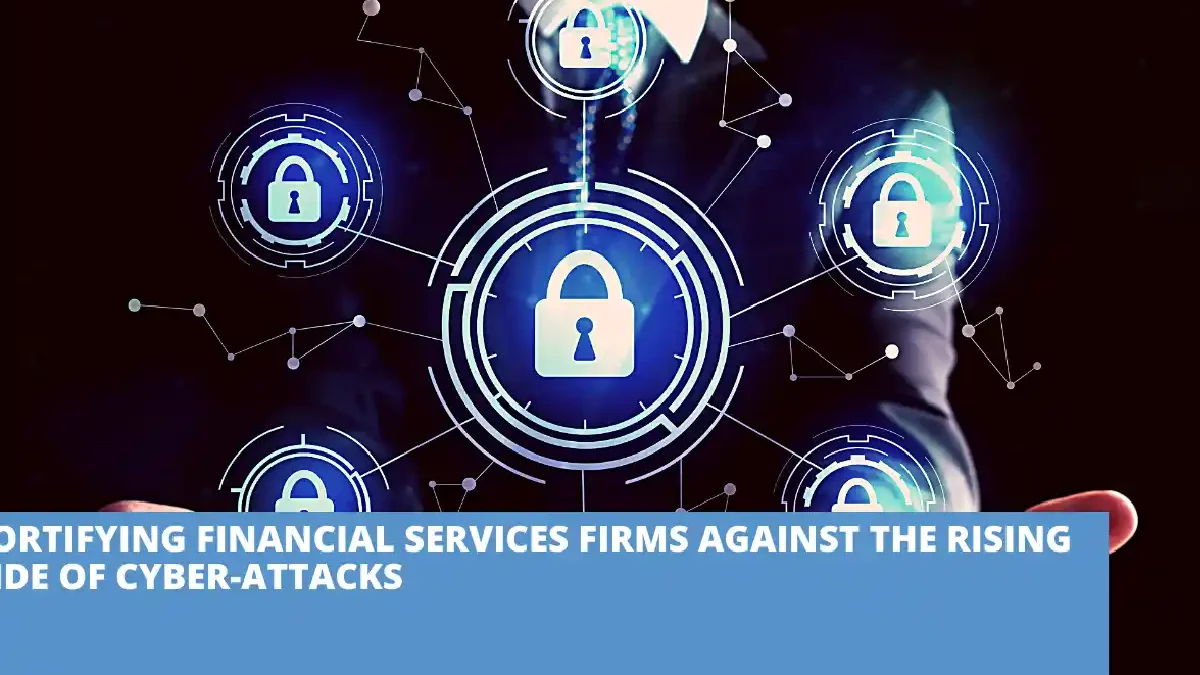Financial services companies must often abide by multiple cybersecurity standards, laws, and regulations. This makes them a target for cybercriminals looking to steal sensitive data and manipulate algorithms. Businesses in this sector need to perform 24/7 threat monitoring. They also need to have backup plans for their data during a disaster.
Table of Contents
Install a Firewall
As cybersecurity for financial services becomes increasingly important, firewall security is one of the most essential tools that a company can have. A firewall protects your network and devices from cyberattacks by putting a barrier between your internal computer system and the outside world, blocking unauthorized access attempts. Firewalls are software or hardware devices that observe and filter incoming and outgoing network traffic, adhering to set security policies. They work 24/7, putting up the first line of defense against hackers and other uninvited threats. A firewall can also prevent spyware and malware attacks. These malicious programs are designed to infiltrate your systems, control computers, and steal data. Firewalls can stop these unwanted attacks by preventing entry points and identifying them. Some firewalls use packet layer filtering technology, which analyzes the contents of each data packet that comes into your network to identify threats. Another firewall type is a stateful inspection firewall, which examines the behavior of each connected device to detect suspicious activity and prevent malicious code from spreading across your networks. Finally, there are proxy firewalls that provide application layer filtering.
Install a Backup
Financial services are uniquely susceptible to cyber attacks as an industry that handles personal information and money. Hackers are constantly looking for ways to steal and monetize that data by using it for financial fraud and other malicious purposes. While technological innovation makes finance more efficient and inclusive, it also creates new vulnerabilities. For example, attackers can use rapid technology advancements to exploit legacy systems. This makes cybersecurity a top challenge for the financial sector. Financial services must strengthen cyber “hygiene,” secure-by-design systems, and incident response and recovery plans to combat this. They must also assess the security posture of third-party vendors and suppliers to prevent attacks through supply chains. This is why many cybersecurity regulations, such as PCI DSS and GLBA, require financial services companies to conduct supplier risk assessments.
Moreover, they should implement an attack surface management solution to improve the speed and accuracy of vulnerability detection. Compliance standards like PCI DSS, GLBA, and SOX recommend such solutions. An attack surface monitoring tool helps financial services improve security posture and meet most regulatory frameworks’ strict cyber resilience expectations.
Invest in a Firewall
Firewalls help protect financial data by preventing unauthorized access while helping to prevent and detect security breaches. These tools are essential for banks and other financial institutions, which rely on digital technology to process transactions, manage customer accounts, and conduct other business operations. Cyber attacks and breaches are a growing risk to the industry and can lead to costly fines, regulatory penalties, or reputational damage. To protect sensitive data from attackers, financial services firms need to invest in a firewall solution to monitor and block all Internet traffic. They also need to implement a Web Application Firewall (WAF) to filter out common web-based attacks, such as cross-site scripting, SQL injection, and brute force attacks. A managed firewall service provider offers the best solution for securing a business’s financial information from malicious hackers constantly looking for vulnerabilities in networks and systems connected to the Internet. With traditional firewall hardware devices becoming obsolete, a hosted firewall service provides businesses with the best scalability and advanced features, such as intrusion detection/prevention systems and advanced threat visibility.
Install a Backup
The financial sector is a treasure trove of data constantly under siege by cyber attacks. A single breach in this industry can have a catastrophic effect because it isn’t just individual companies that would be affected but the entire global financial system and the essential systems that allow commerce — and a functioning economy – to function. As a result, cyber threats are more prevalent than ever before. Sophisticated attackers exploit employees’ weaknesses and the industry’s lack of vigilance to steal data and money successfully. Rapid technological advances also offer attackers tools that are cheaper and easier to use, enabling them to attack more targets more easily. The pandemic, for example, allowed hackers to take advantage of the widespread fear and confusion to amplify their phishing campaigns, tricking staff into providing access credentials that gave them a foothold in their employer’s security defenses and critical systems. Despite these challenges, financial services typically have some of the industry’s most substantial cybersecurity measures. However, the threat landscape continues to evolve, and more work always needs to be done.
Install a Firewall
Firewalls are one of the most essential tools for cybersecurity in financial services. They help prevent hackers from stealing or damaging your data, emails, systems, and more by blocking unauthorized internet traffic.
Similar to the physical wall that protects your home from fire, a digital firewall acts as a barrier between your network and malicious traffic. It constantly monitors your network’s traffic based on predetermined security rules. If it identifies an incoming or outgoing data packet as a threat, the firewall immediately blocks the traffic to prevent malware, viruses, or other cyberattacks from spreading. There are several different types of firewalls to choose from, including hardware firewalls and software firewalls. The best option for your business depends on your needs and budget.

